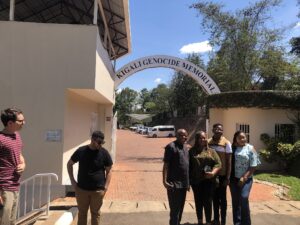The Rwandan Genocide Memorial: A Powerful Reminder of the Past
The Rwandan Genocide Memorial stands as a solemn reminder of one of the most tragic episodes in modern African history—the 1994 genocide against the Tutsi in Rwanda. Located in the capital city of Kigali, this memorial center honors the memory of over 800,000 men, women, and children who lost their lives in just 100 days of ethnic violence. Moreover, it serves as a place of education, reflection, and healing for both Rwandans and the global community.
A Brief History of the Rwandan Genocide
To understand the significance of the Rwandan Genocide Memorial, one must first grasp the context of the genocide itself. Between April and July 1994, Rwanda experienced a mass slaughter orchestrated by extremist members of the Hutu majority against the Tutsi minority and moderate Hutus. The violence erupted following the assassination of President Juvénal Habyarimana when his plane was shot down near Kigali airport.
Fueled by decades of ethnic tension, propaganda, and political manipulation, the killings began almost immediately. Machetes, clubs, and makeshift weapons became tools of mass murder. In addition, media outlets such as Radio Télévision Libre des Mille Collines (RTLM) incited further violence by broadcasting hate speech and promoting anti-Tutsi propaganda. Churches, schools, and community centers, places that once symbolized safety, became scenes of unspeakable horror.
What is the Rwandan Genocide Memorial?
The Kigali Genocide Memorial, often referred to as the Rwandan Genocide Memorial, was opened in 2004 to mark the 10th anniversary of the genocide. It is located in Gisozi, about 10 minutes from Kigali city center. The memorial is both a burial site and an educational museum.
Over 250,000 victims of the genocide rest in mass graves within the memorial grounds. These graves are marked, maintained, and surrounded by gardens that offer a peaceful space for remembrance and reflection. Visitors can walk through the gardens, lay flowers, and pay their respects.
The museum section inside the memorial provides a deeply informative and emotional experience. Through video testimonies, photographs, personal artifacts, and documents, it narrates the events leading up to the genocide, the atrocities committed, and the ongoing journey of recovery.
Why Should You Visit the Rwandan Genocide Memorial?

Visiting the Rwandan Genocide Memorial is more than a historical tour; it is a journey into the soul of a resilient nation. Tourists often ask, “Is it safe to visit the memorial?” Absolutely. Rwanda today is one of Africa’s safest and most peaceful countries. The memorial itself is well-guarded, respectfully managed, and designed to offer a safe environment for visitors.
Secondly, tourists often wonder, “Is the visit emotionally overwhelming?” Without a doubt, it is intense. However, many find it to be a deeply transformative and enlightening experience. It confronts the darkest side of humanity while also showcasing the power of forgiveness, unity, and healing.
Moreover, “What should I expect during the visit?” Typically, your visit begins with a short film that sets the historical context. You then proceed to different exhibition rooms, each focusing on a specific theme—pre-genocide history, the genocide itself, global inaction, and post-genocide recovery. One section poignantly displays portraits of child victims, their favorite foods, last words, and how they died. Another room explores genocides from around the world, placing Rwanda’s tragedy in a global context.
Frequently Asked Questions About the Rwandan Genocide Memorial
1. How much is the entrance fee?
Entry to the Kigali Genocide Memorial is free, although donations are highly encouraged. These funds support educational programs and upkeep of the site.
2. Are guided tours available?
Yes. The memorial offers audio guides in multiple languages and professional human guides for a more personal experience. Booking in advance is recommended, especially during peak seasons.
3. How much time should I allocate for the visit?
Plan to spend at least 2 to 3 hours at the memorial. This allows you to walk through all exhibits, watch the introductory film, and spend time in the gardens.
4. Can children visit the memorial?
While there is no age restriction, the content is extremely sensitive. Parents and guardians should consider whether younger children are emotionally prepared for such an experience.
5. Are photos allowed?
Photography is permitted in outdoor areas, but not inside the exhibit rooms. This ensures respect for the victims and maintains the integrity of the memorial.
6. What is the dress code?
Out of respect, visitors should dress modestly. Avoid flashy or casual attire such as shorts, tank tops, or loud colors.
7. Is there a gift shop or café on site?
Yes, a small shop sells books, locally-made crafts, and souvenirs. A peaceful café offers refreshments and light meals, making it a suitable spot for reflection after the visit.
8. What is the significance of the memorial?
The memorial serves as a reminder of the devastating events of the genocide, promoting tolerance, understanding, and peace.
How Rwanda Has Rebuilt Since the Genocide
Although the Rwandan Genocide Memorial reminds visitors of past atrocities, it also highlights Rwanda’s extraordinary journey of transformation. The country has embraced reconciliation, national unity, and social progress. Initiatives like the Gacaca courts, community service (Umuganda), and government-led reconciliation efforts have rebuilt trust across communities.
Furthermore, Rwanda’s commitment to education, health, and innovation positions it as one of Africa’s most promising nations. The memorial helps contextualize this recovery, showing that peace and resilience can triumph over hatred and division.
Conclusion
The Rwandan Genocide Memorial is not just a museum—it is a testimony to the enduring strength of the human spirit. It educates, mourns, and inspires. For anyone visiting Rwanda, a stop at the memorial is not only recommended but essential. It deepens your understanding of the country’s past, enriches your appreciation of its present, and gives you hope for humanity’s future.
















